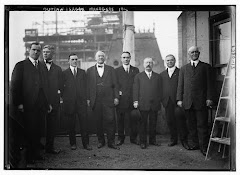Reviewer: BeezusKiddo
John Kennedy Toole's
A Confederacy of Dunces (1980) and Veronica Roth's
Insurgent (2012) are so completely opposite that I thought it would be interesting to discuss them side by side.
 Rating:
Rating: 3 homemade high-quality pierogies. Well, maybe 4.
A Confederacy of Dunces is a novel by an author who
loved language, and who was exceptionally skilled with language. Nothing really happens in the plot-- the main character, Ignatius Reilly, is a slovenly buffoon, who is forced to find employment after his mother causes some property damage while driving in her signature drunk fashion. Reilly first works at a pants factory, where he gets canned. Then he works as a hot dog vendor, and gets canned. None of this gets him down. The world just does not understand his GENIUS.
Reilly was funny at first, but eventually got on my nerves, mostly because I know an in-real-life Ignatius Reilly. I love a good comeuppance. Reilly never gets one, despite his selfish, egomaniacal, bombastic ways, and neither has the in-real-life Reilly I know. The lack of retribution was grating.
Confederacy has been praised as the greatest comic novel of the 20th century. I certainly thought it was funny, but I was distracted from truly appreciating its humor by my annoyance that Reilly never gets what should be coming to him.
The true delight of Confederacy is the artful language. Some gems:
In spite of whatever spiritual qualities it may possess, skid row is definitely sub-standard in the matter of physical comfort, and I seriously doubt whether my substantial and well-formed physique would easily adapt to sleeping in alleys. I would definitely tend to hang over park benches. Therefore my size itself is a safeguard against my ever sinking too low within the structure of our civilizations. [After all,
I do not believe that one must necessarily scrape bottom, as it were, in order to view his society subjectively. Rather than moving vertically downward, one may move horizontally outward toward a point of sufficient detachment where a modicum of creature comforts are not necessarily precluded. I was there--on the very rim of our age-- when my mother's cataclysmic intemperance, as you well know, catapulted me into the fever of contemporary existence. To be quiete honest, I must say that since then things have been getting worse and worse. Conditions have deteriorated.
and
I recommend Batman especially, for he tends to transcend the abysmal society in which he's found himself. His morality is rather rigid, also. I rather respect Batman.
These aren't even the BEST passages. There are several more passages that are significantly funnier and more brilliant, but they are too crass for me to post here. You'll have to go read them for yourself.
 Rating:
Rating:1 burnt Mrs. T's Pierogi. Blech.
Whereas Confederacy is a book of amazing language and no plot,
Insurgent is all action but trite language.
Insurgent follows Beatrice Prior as she leads some sort of revolution or uprising or something in the post-apocalyptic America that has been divided into separate factions according to dominant personality traits ("Candor" values honesty above all else, "Erudite" values knowledge above all else, "Dauntless" values courage above all else, "Amity" values peace above all else, and "Abnegation" values selflessness above all else.)
I've read a few reviews that compare the Divergent/Insurgent books to The Hunger Games, but Suzanne Collins as a much more compelling storyteller than Roth. Divergent kept me interested by its fast plot and novelty, but the novelty has run out in this second book. The plot is again fast-paced, but it goes in too many directions all at the same time, and there are so many characters (and none of those ever-helpful one liner reminders of who the heck anyone is) that it's easy to get lost/bored.
Insurgent is mostly told through dialog, except the dialog is overwhelmingly banter, and not even witty banter. It reminded me of the kinds of short stories I wrote in high school (which I long since abandoned, because they were
terrible). I really don't like saying bad things about a book, because I know the author worked darn hard to crank out and edit the story, and I know that if the author herself weren't proud of it, she would have never had it sent to print, but I just can't like this book.
Roth credits all kind of reviewers and friends at the end of the book...and none of them could break it to her that this book is terrible? The TWIST at the end was very predictable, and the promise of learning more about that plot line isn't even enough to keep me interested in reading the next one. If anything convinces me to read the third one (when it does come out), it would just be for the sake of finishing something I have started, not because I'm enthralled by the world of Beatrice Prior.



